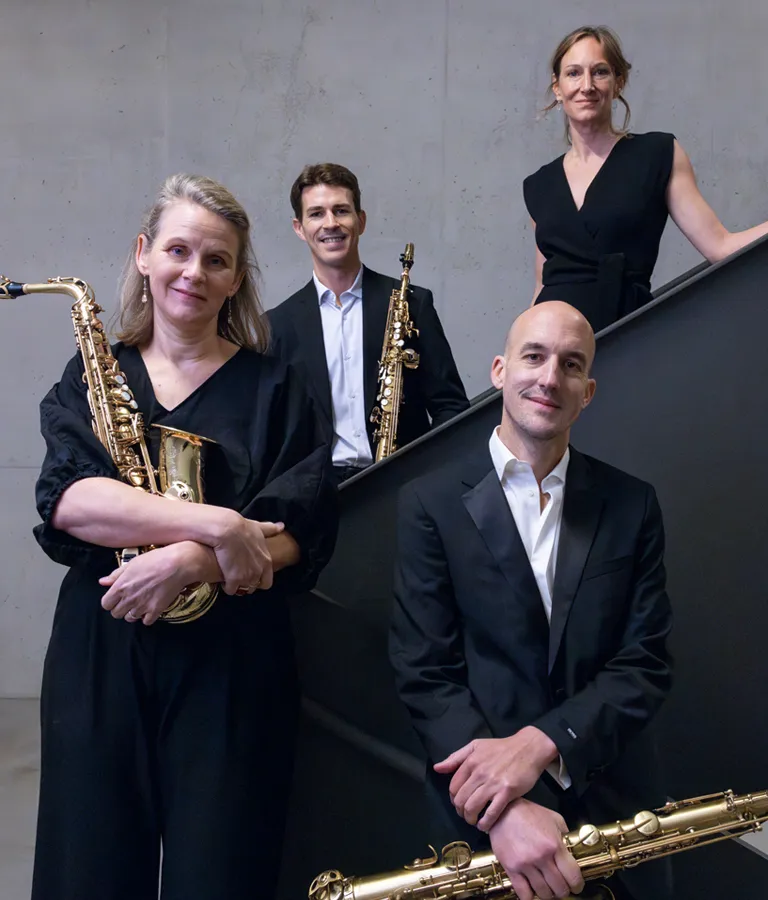A unique energy
It is obvious why the four musicians from Berlin are called “clair-obscur”. Clair-obscur, a painting technique from the Renaissance, in which opposing light and dark tones are used to symbolise heavenly and earthly elements, is the visual equivalent of the sounds the quartet draw from their instruments: on the one hand, warm, intense and clear, and on the other harsh, aggressive and robust. These two poles can also be found in the composition of the quartet: two female and 2 male musicians in one ensemble create a unique musical energy.
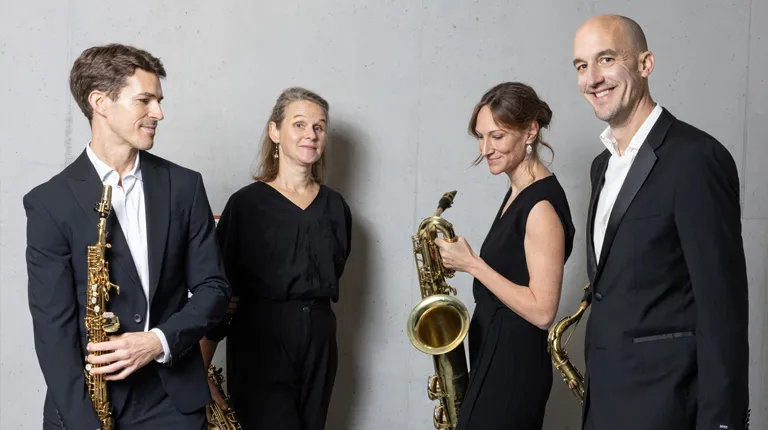
Ensemble members
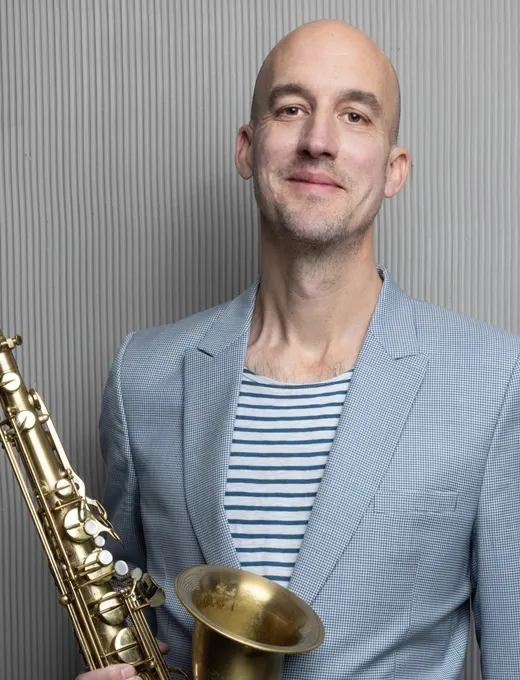
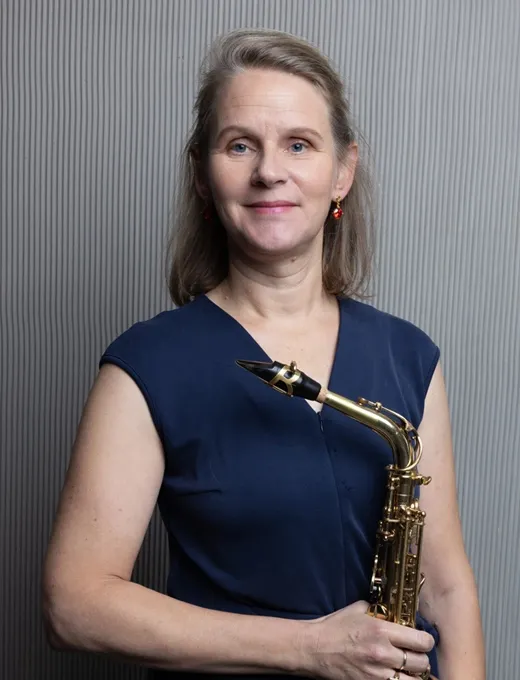
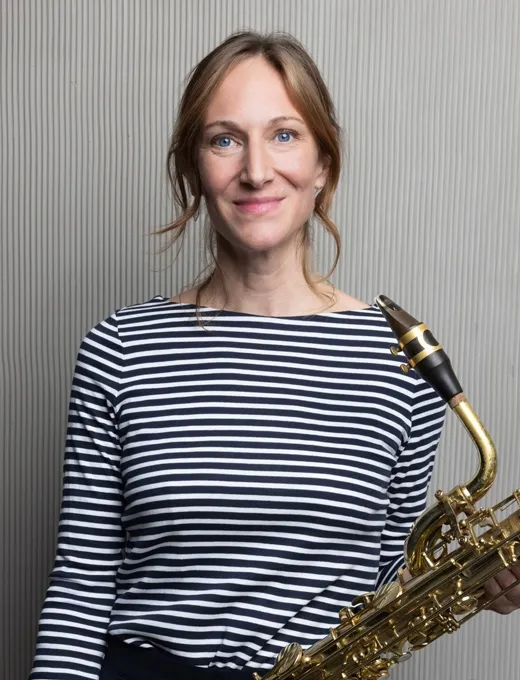
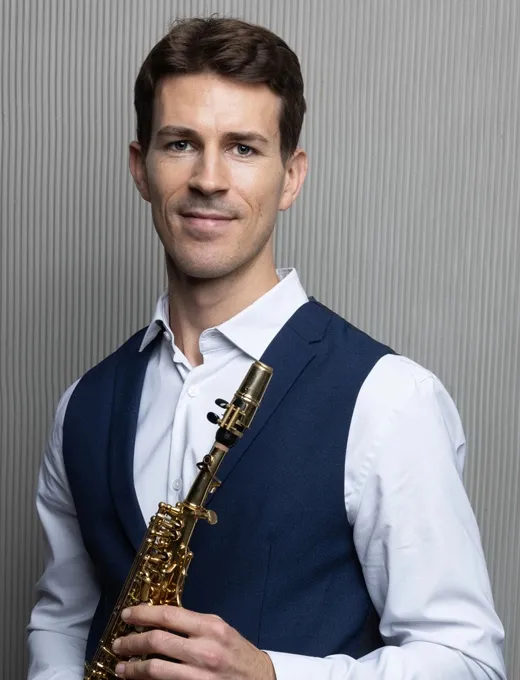
Joy of playing, looseness and humor
The saxophone quartet clair-obscur has been one of the most renowned quartets of its kind for many years. Performances at Carnegie Hall, the Philharmonie Berlin, at the Lucerne Festival and the Schleswig-Holstein Music Festival speak for themselves. The individual quality of its members, who regularly form the saxophone group of the Berlin Philharmonic and teach as lecturers at various music colleges, is further enhanced through their interaction. The very own sound, the somnambulistic interaction after almost 20 years of continuous ensemble work and their performances characterized by joy of playing, looseness and humor make every clair-obscur concert an experience.
The enormous quality, flexibility and stylistic confidence enable clair-obscur to play any kind of music without blinders – and at the highest level. Clair-obscur know no taboos, play what they like and prove time and again that any kind of music reaches the audience if it is played and presented well. And they sound good: the ideal arrangements that clair-obscur has in mind sometimes make you forget that there is ‘only’ a quartet on stage.
Clair-obscur were the first saxophone quartet to be admitted to the chamber music exam at the “Hanns Eisler” University of Music, where they were taught by Prof. Friedemann Weigle (Artemis Quartet). Weigle gave the four musicians the courage to be independent and the “ability to play rock’n’roll” (by which he did not mean the genre, but rather a vital, gripping style of playing) and formed the four completely different characters into a unit. The quartet won national and international competitions.
The extraordinary personality of clair-obscur is also evident in the concert series organized by the four musicians themselves in the Ballhaus Berlin, where unusual formats meet prominent guests, including the oboist Dominik Wollenweber and the actor Boris Aljinovic (known as the Berlin Tatort commissioner ) and Rolf Becker.
For these and other events, clair-obscur took acting lessons specifically in order to be able to incorporate acting elements into selected programs.
Clair-obscur designed radio recordings and CD recordings for the RBB, BR and SFR, among others, appeared as a soloist ensemble with the MDR symphony orchestra, the Augsburg and Bielefeld Philharmonic, the Oldenburg State Orchestra and the Northwest German Philharmonic, and were at numerous premieres and first performances of works by well-known composers, some of which were written specifically for clair-obscur, including “Berlin Punk” by Enjott Schneider.
